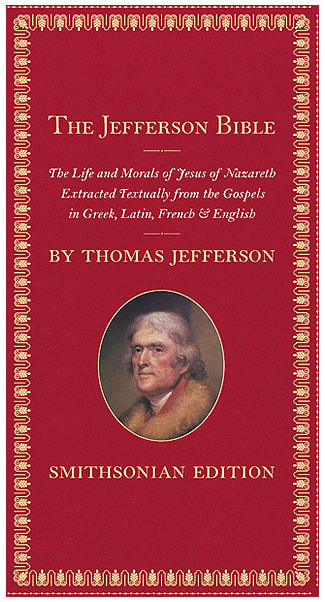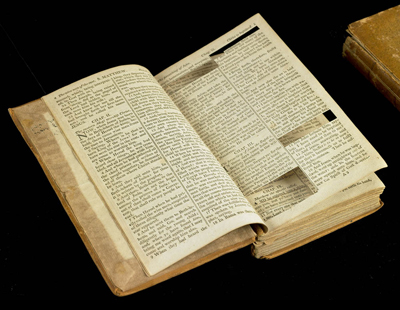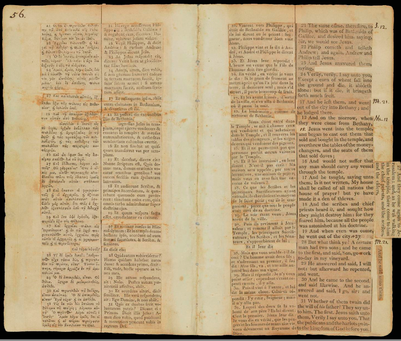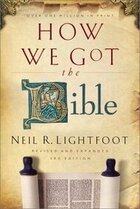beginning at 7:00 pm on Wednesdays.
at the church of Christ in Carthage, Missouri, south of the Ford dealership
PLEASE JOIN US!
| This book, constructed by President Thomas Jefferson - self-proclaimed author of America's religious freedom - is a painstaking endeavor to fulfill a promise to an old friend. It was one man's effort to understand the Bible more clearly. In doing so, Jefferson left a document that tells us more about his thoughts and opinions of the Christian religion. It is not a Bible and he he did not title it as such, but is does include the four Gospels, arranged chronologically. Dr. Benjamin Rush, signer of the Declaration of Independence, encouraged his friend Thomas Jefferson to formulate his beliefs in writing. Jefferson promised to do so. With knife in hand, Mr. Jefferson set out to construct a document that he respected and understood to be true. He put together a book of interlinear columns representing four of the seven languages Jefferson could read, those languages becoming a part of the real title as he assigned it: The Life and Morals of Jesus of Nazareth Extracted Textually from the Gospels in Greek, Latin, French, and English. Mr. Lincoln constructed a chronological account of the four accounts of the Gospel from the New Testament of the Bible - but he purposefully omitted sections he did not believe were true. That is to say, President Jefferson cut out any reference to miracles. He cut out most references to angels. You won't find water turning to wine, blind and lame people being healed, or any reference to a resurrection as reality. In the light of this, (or at least the one column that I can read), I am somewhat amazed that he left references to a God who resides in a Heaven. There are several versions of this book with a variety of covers and bindings. I chose this one because it contains a photographic copy or the original text, complete with Jefferson's handwritten labels. I can turn to any page and find his knife cuts. I became interested in this volume when I discovered the National Museum of American History link to the story of the "Jefferson Bible". The site contains information about the meticulous restoration of the book, complete with ink-study, binding, and more. As a part-time preacher, history buff, and teacher of American history, the book interests me in all three. It is a beautiful and compelling peek into the mind of a national genius. I may not share Jefferson's opinion of miracles, angels, and resurrection, but I must appreciate the lengths to which this man went to study the words. Few people I know have spent the hours Jefferson did in discerning the Life and Morals of Jesus of Nazareth... |
Our focus for this study hinges on answering these two big questions. The goal is to get closer to the answers each week in our class.
Is the Bible accurate and dependable?
Does God Communicate with Us Outside of the Bible?
|
|
|
| | | |
So how important is it to you that the Bible can be proven true? Do you believe there is irrefutable evidence to its validity? Is proof something that strengthens your personal faith in the existence of God?
Should faith alone be enough to drive you to drive you to your knees? Is "blind" faith a stronger kind of faith? If so, then why did God provide so much evidence?














































